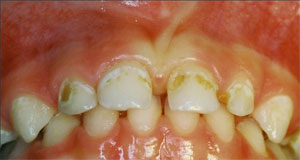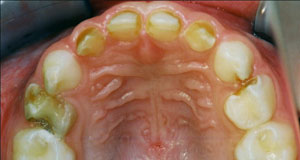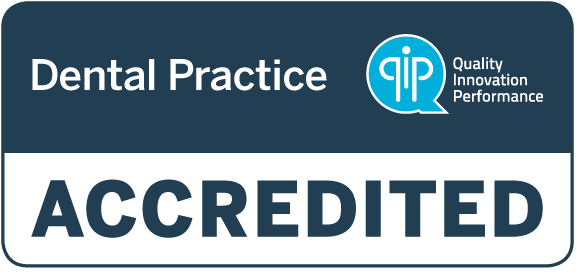Early Childhood Dental Decay
The cause of dental decay in young children is multi-factorial. In general, dental decay is caused by dental plaque, a thin, sticky, colourless deposit of bacteria that constantly forms on everyone’s teeth. When sugar is eaten, the decay causing bacteria (mutans streptococci) in plaque produce acids that attack the tooth enamel. After repeated acid attacks, the enamel breaks down, and a cavity (hole) is formed.
Dental decay in young children mostly results from frequent and prolonged exposures of primary teeth to liquids that contain sugar such as milk, breast milk, formula, juice and other sweetened drinks or medications.
Putting a child for sleep with a bottle other than water can cause serious and rapid dental decay. Sweet liquid pools around the child’s mouth, especially the flow of saliva is reduced during sleep, resulting in rapid destruction of teeth.
The presence of early caries in young children is always a good predictor of future caries development in their primary and permanent teeth. Therefore, it is important that the cause of dental decay to be determined early in young children, so that proper preventive and restorative steps can be taken to avoid dental decay in permanent teeth.









